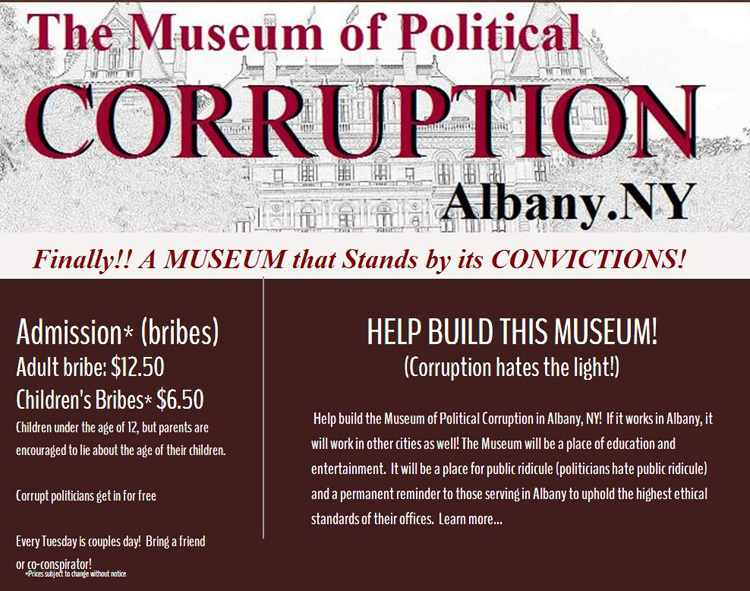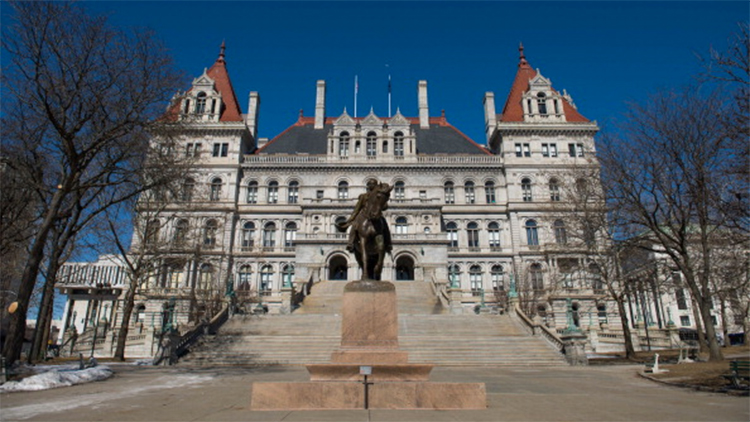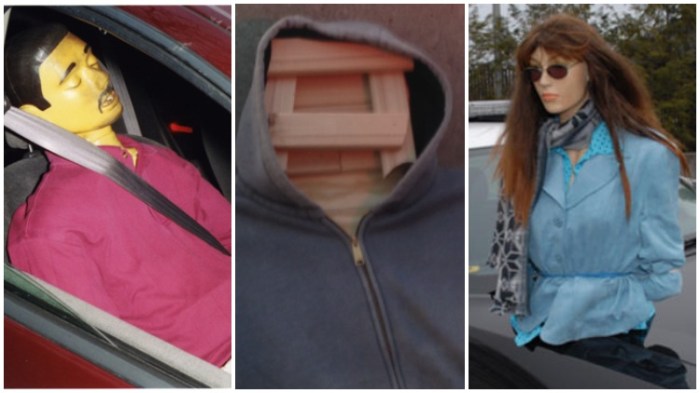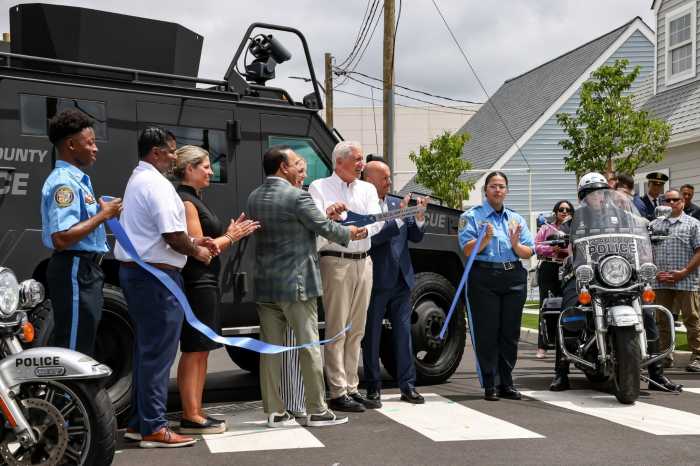Every city has its quirks, its calling card, its claim to fame.
Our beloved capital is no different. While Chicago remains known for its deep-dish pizza, Portland for its hipsters, and Nashville for its music, Albany’s distinction relies on its long and storied history of corruption.
Bruce Roter, professor of music at the College of Saint Rose in Albany, believes that we should embrace this nefarious distinction as a local treasure, which is why he is proposing a Museum of Political Corruption, to be housed just steps away from the capital building.
The idea occurred to him while he was speaking with a local politician about what they could do to change people’s perceptions about Albany residents from the notion that they are so serious all the time.
“It struck me that what Albany is known for is corruption,” Roter, who hails from Hauppauge, tells the Press in a phone interview. “So rather than hide from it—which is impossible, anyway—we might as well use it as a resource. And it seems to be a resource that keeps on giving. Any time Albany is in the news for corruption, our community should be hearing the word ‘ka-ching!’”

Roter’s proposed museum would contain a “Lobbyist’s Lobby” (featuring an actual revolving door in the center of the room), a “Tammany Hall” lecture hall, and opposing Halls of Shame and Honor. It would serve as both an entertainment and educational facility that would take both a serious and whimsical look at the history of corruption in New York State. It would accept $12.50 “bribes” for admission. Children under the age of 12 would be $6.50, but according to their website, “parents are encouraged to lie about the age of their children.”
Parlaying off perhaps Albany’s most uniquely shaped building, The Egg—a performing arts venue resembling, you guessed it—Roter envisions the museum constructed as a giant golden egg (#ProjectGoldenEgg) to serve as a constant visual metaphor.
What can hungry visitors expect to eat while perusing the museum’s many politico exhibits?
Pork, of course! The Cozy Crony Café, to be housed inside, will serve bamboozled taxpayers Pork Rolls, Pork Bellies, Pork Au Jous, Pigs In A Blanket and NY Glazed Pork Puffs, among many other over-priced treats.
The Museum Store will offer “Kickbacks” and “Quid Pro Quos” for sale, as well as figurines of savvy, greedy elected officials, bearing the inscription: “I bought this legislator in Albany, NY.” Visitors could also purchase the 15 Ways to Cook Your Books (until they’re well done) Cookbook.

The main mission of the museum is to encourage frank and open discussions about the nature of corruption and how best to combat it, explains Roter. By hosting exhibits showcasing the state’s plentiful supply of crooked lawmakers and detailing their crimes, the museum would “serve as a deterrent against corruption by holding political corruption up to the light of public scrutiny and ridicule,” reads one tenet from its mission statement.
“I think we’ve been relying for so long on others trying to solve the problems of corruption, whether it be a failed Moreland Commission or what have you, that we’ve forgotten as a society that it’s really the public that has the final say,” he says. “And this would be the public’s museum, and it would give the public the opportunity to feel empowered to do something about corruption.
“How do we combat corruption, but institutionalize it in this museum?” asks Roter. “And being just a few feet away from the state capitol, hopefully it would serve as a resource and a reminder to our state officials to uphold the highest ethics of their office.”
The museum would not only focus on the convictions of corrupt officials in the Hall of Shame but also highlight public servants who have worked tirelessly to fight corruption in the Hall of Honor.
Zephyr Teachout, the Democratic primary challenger to incumbent Gov. Andrew Cuomo, would be a great fit for this wing, according to Roter. Her upcoming book, due out this September, “Corruption in America,” could be sold in the bookstore, he adds.
“I very much appreciate the spirit of her campaign and I think that she would bring a freshness and ethical standing to the office that I don’t believe currently exists,” says Roter. “But having said that, I also want to emphasize that the museum would be completely nonpartisan.”
Teachout responded: “We already have a museum of corruption in Albany! That’s why I’m running.”
“New York deserves first-rate politics instead of third-rate old boy corruption,” she continued.
In order to insulate the museum from what might be an ironic layer of corruption and conflict of interest, Roter says the question of how it is funded must be carefully examined. If the museum runs as a public nonprofit, he explains, it would have to accept government funding and grants—this would mean accepting money from those who might one day find themselves nominated for a place on the inside. It might also include taking funds from those who want to insure they remain on the outside, he adds.
“A public enterprise does, by its very nature, need to have a certain level of transparency that one would expect from it and, ironically, ethics,” Roter mused. “It’s something that we’re considering. There would be a conflict of interest.”

For now, they are accepting donations from the public and hope to launch a Kickstarter campaign soon. If the museum is run as a private business, Roter believes it could ultimately become a profitable endeavor for its investors. Money made from the museum could help to beautify Albany, which, he adds, is “dragged through the mud so often.”
If this museum is successful, might there be a future for museums of corruption outside of the county executives’ and legislatures’ offices here on Long Island?
“Of course!” laughs Roter. “I would support little satellite museums in Nassau and Suffolk.
“Anything dealing with politics in New York State would be eligible for inclusion in the museum, so I’m afraid Chris Christie is off the hook, at least for this time,” he says.
“He is a bridge too far.”
For more information on the Albany Museum of Political Corruption, to donate, to pass along the names of local legislators you believe also deserve inclusion in such a hallowed institution, or learn how else you might help make it a reality, check out www.albanymuseumofpoliticalcorruption.org.
































